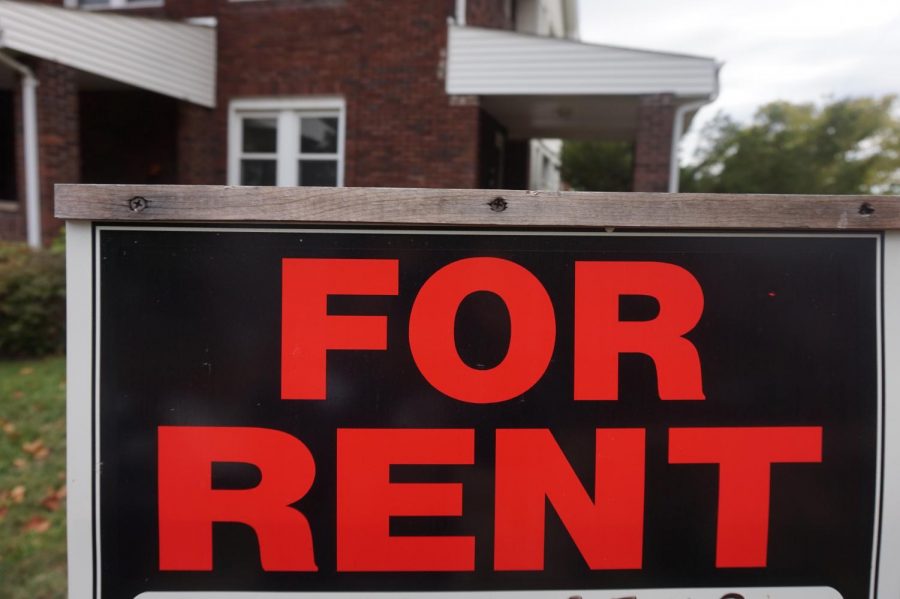Q&A: Housing experts give tips to new renters
A “For Rent” sign.
November 10, 2021
With the temperature dropping, finals approaching and the fall semester coming to an end, Pitt students are in the midst of hunting for off-campus housing.
The Pitt News talked with Megan Confer-Hammond, executive director of The Fair Housing Partnership of Greater Pittsburgh — a nonprofit organization dedicated to enforcing fair housing rights — and a University spokesperson about navigating the housing market. Pitt’s Office of Off-Campus Living provides students with resources needed to make smart housing decisions.
Responses have been edited for length and clarity.
Q: What should students make sure they have done before they legally commit to renting? What research can/should a student do?
CH: Landlord/tenant laws are governed by the states. So make sure to read The Pennsylvania Landlord and Tenant Act of 1951. Pay attention to state and local legislative decision-making. For example, the city of Pittsburgh recently passed a rental registry ordinance that would require rental units to pass a health and safety inspection.
US: Before committing to renting, students should consider the type of housing they are looking for and where they want to live. Thoroughly reviewing their lease is the last and most important step.
Before signing a lease, students should read it thoroughly and make sure they understand the terms and conditions. The OCL website provides a list of steps to take before signing a lease, and students can reach out to Off-Campus Living with questions about their specific lease.
Q: What questions should a student ask their landlord before signing a lease?
CH: If a student has a roommate, ask if each individual is jointly or individually liable to the lease. For example, if roommates are jointly liable, then if a roommate vacates the unit before the end of the lease, the remaining roommates are responsible for the entire monthly rent and for securing a new roommate.
US: Students should ask about any terms and conditions that they do not understand, and they should inquire about any building or property rules and regulations that are not listed in the lease.
Q: How soon should a student sign a lease after touring an apartment if they like it?
CH: Signing a lease makes the student obligated to the unit. Make sure to obtain the unit’s keys at the lease signing.
US: Students should take their time to thoroughly review their lease before signing.
Q: What is the most common issue or red flag in student leases, and how do students spot them?
CH: Waiving tenant rights is an unfortunate commonality in leases such as waiving the right to a notice by the landlord prior to an eviction filing and the right to complete the lease if the unit is sold during the lease.
US: Students should check their lease for any provisions that may not be in compliance with state and local laws. An example would be a provision that forces a renter to agree to accept blame in a future dispute with the landlord. More examples of provisions to avoid are available on the OCL website. Unlawful lease provisions are something to keep in mind.
Q: What should students make sure is included in their lease?
CH: The landlord’s contact information and how to best contact the landlord.
US: Students should make sure their lease clearly states beginning and end dates, who is responsible for utilities and the amount of their monthly rental payment.
Q: What are the most important sections of a lease to review?
CH: Understand the clauses regarding repairs, responsibilities for appliance maintenance, lease renewal and early lease termination.
Q: Has anything changed with the COVID-19 pandemic in terms of norms or laws around renting and leases?
CH: Federal and local eviction moratoriums have ended, which were the biggest COVID-19-related changes to renting. Students should take pictures of the unit to document its condition before moving in and again take pictures of the unit at move out before turning over the keys. Pictures are crucial in any ensuing dispute about unit damages. Communicate with your landlord in writing to ensure clarity in case a dispute later arises.
Alexandra Ross contributed reporting.








